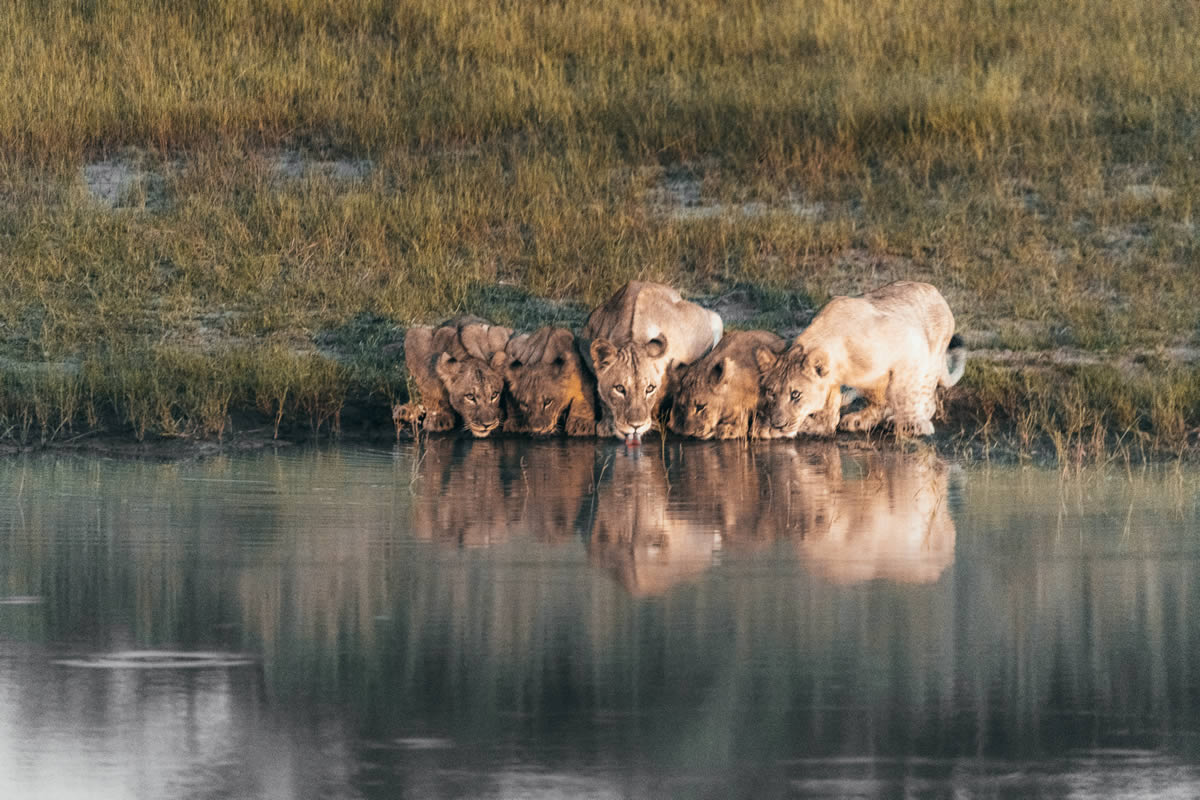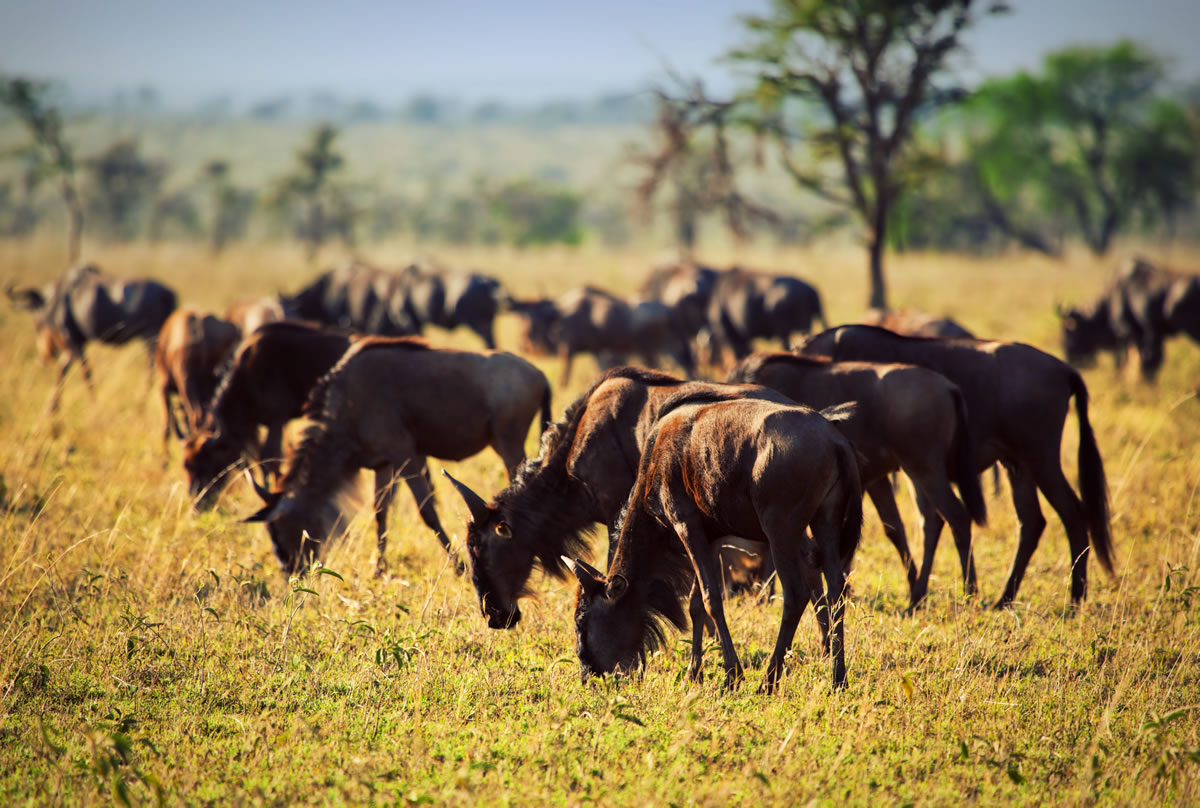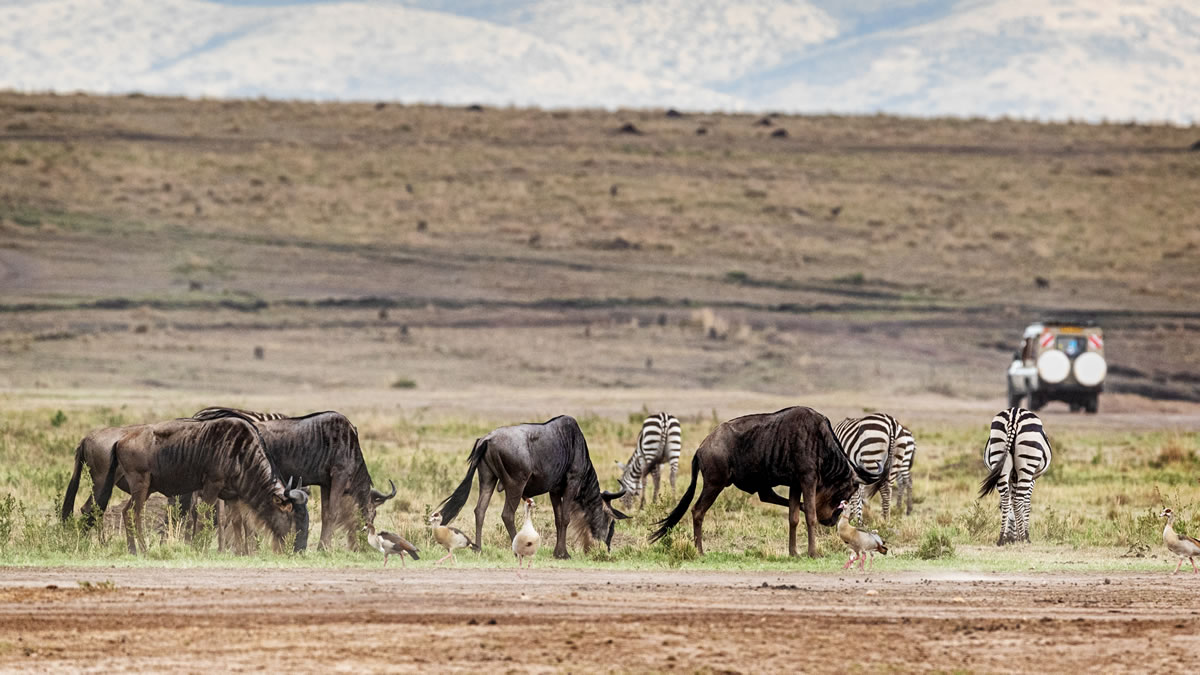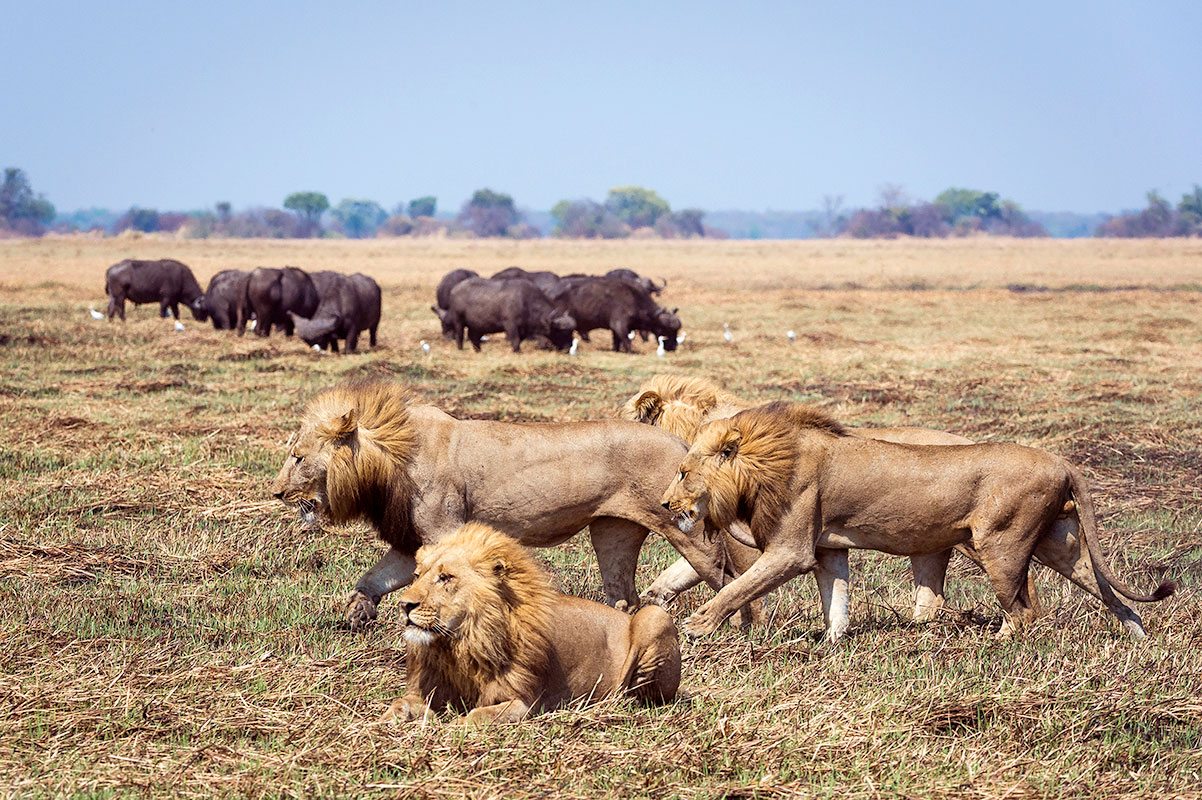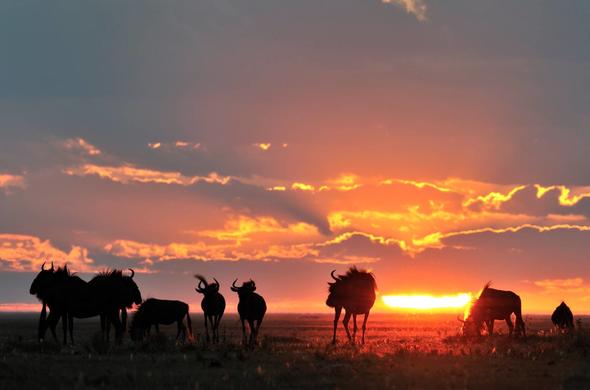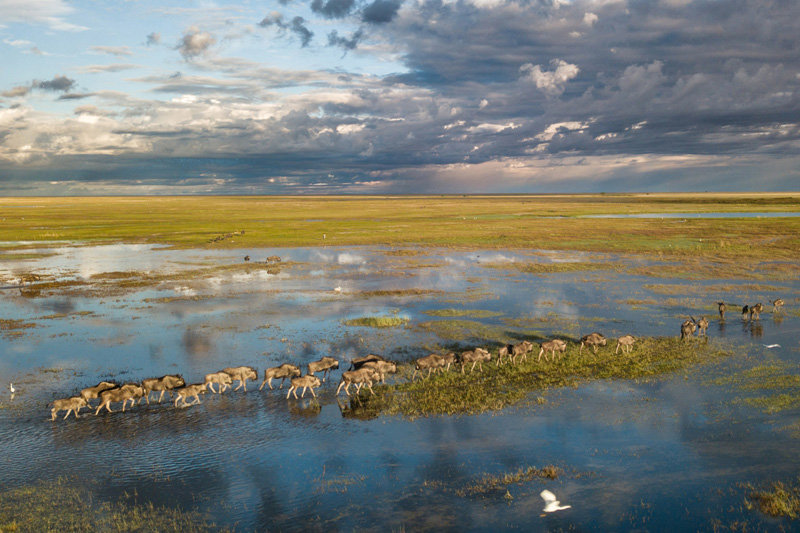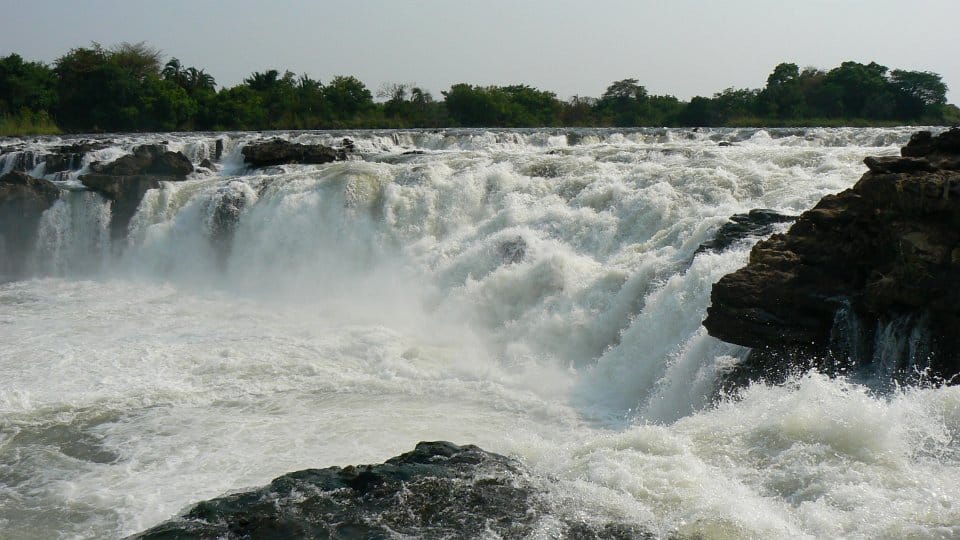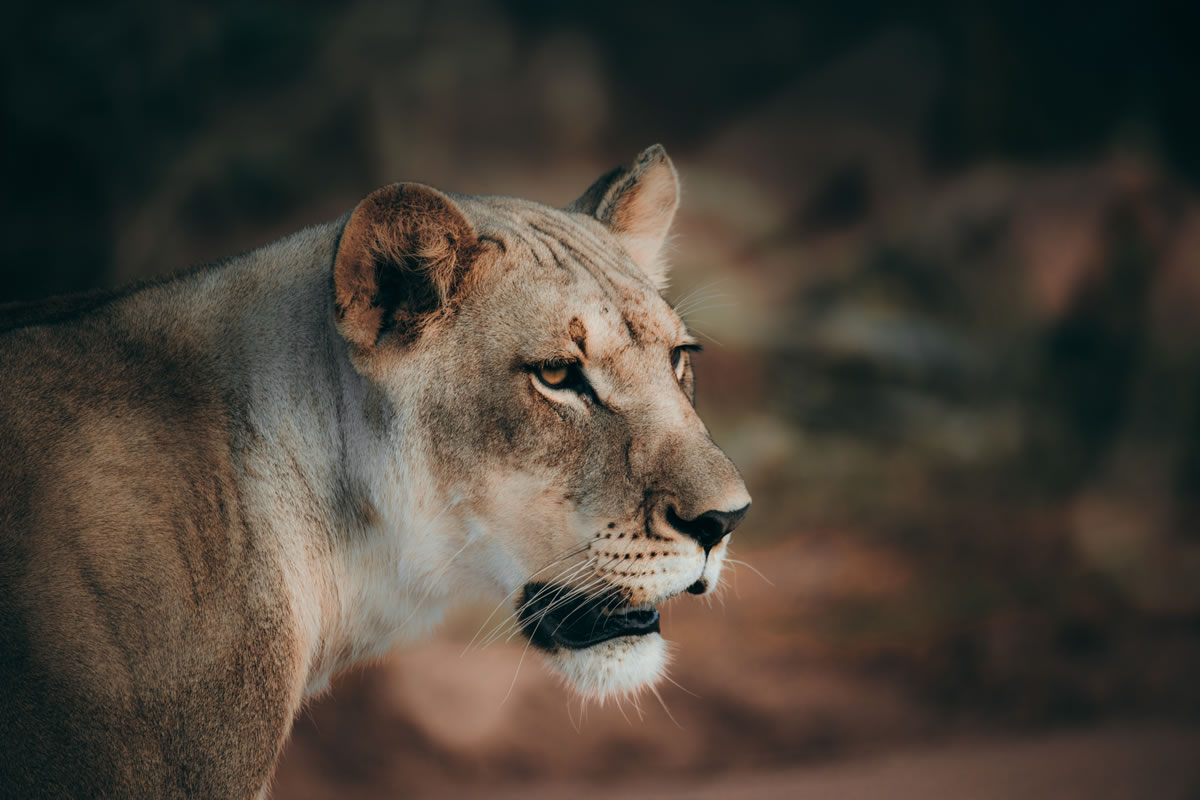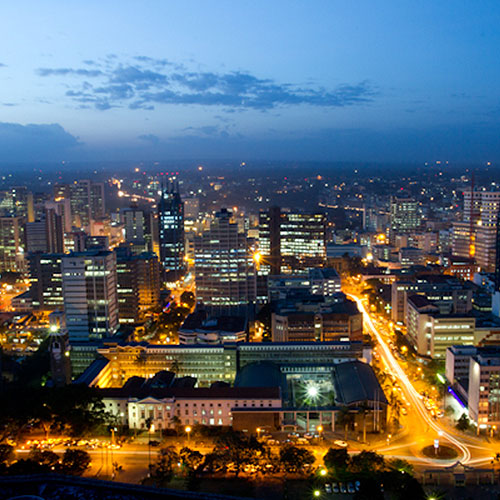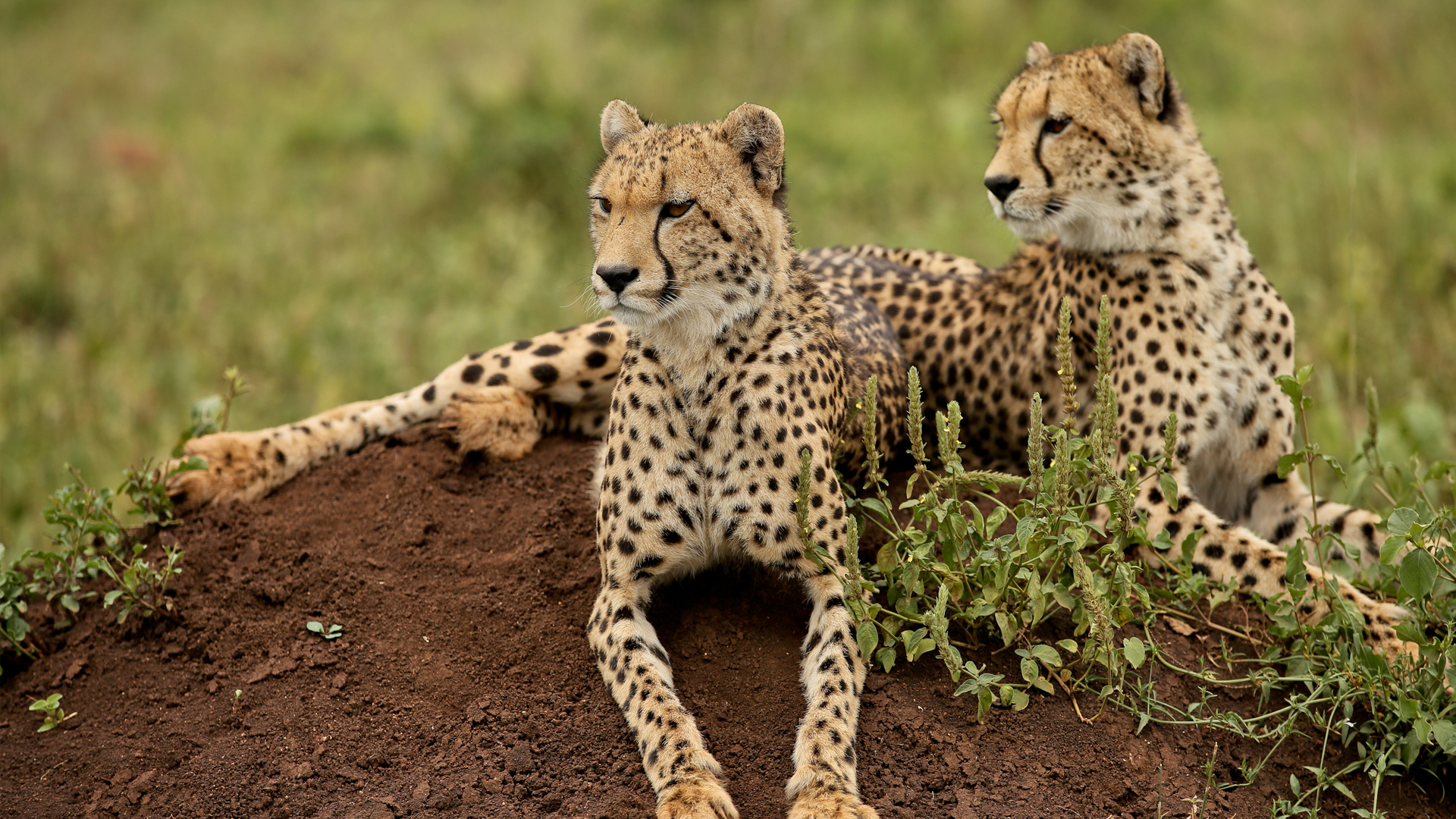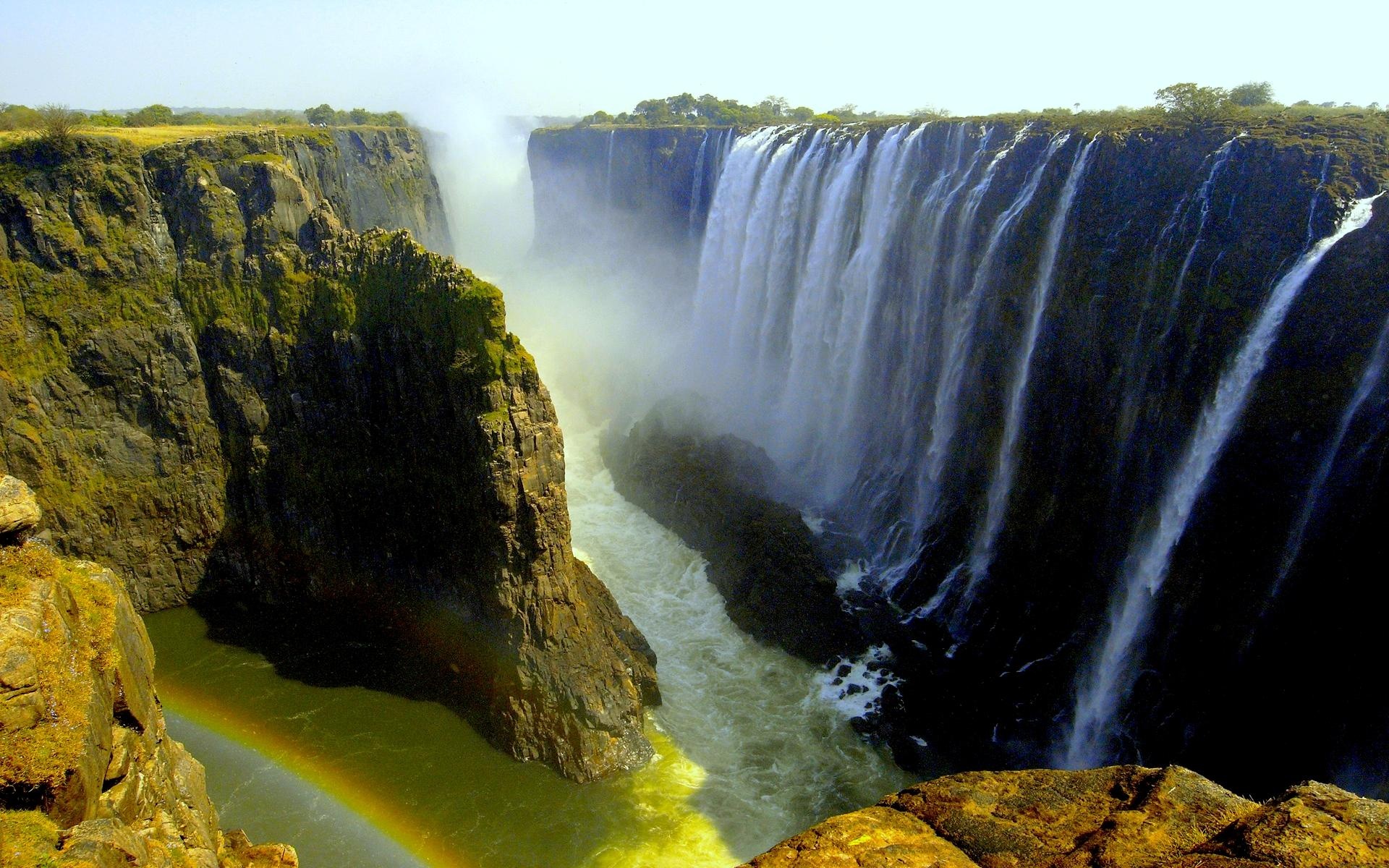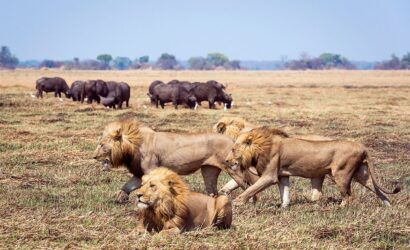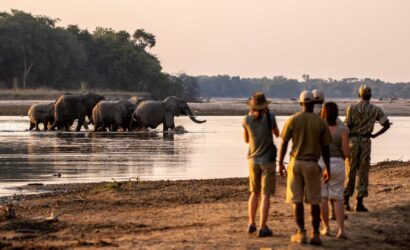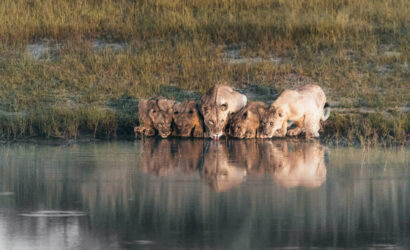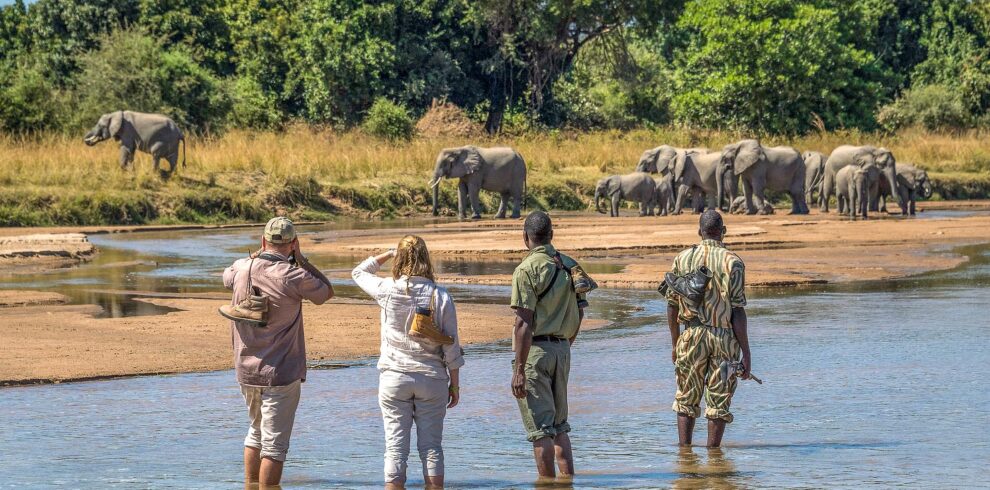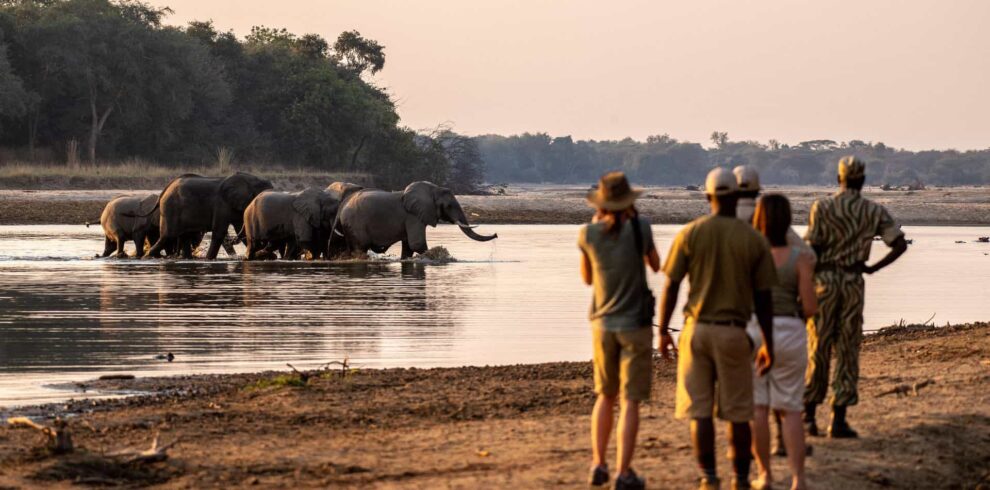Kafue National Park (Busanga plains), Liuwa Plains, Ngonye Falls, Victoria Falls
Overview
Our WILDERNESS EXPEDITIONS aim to explore some of Africa’s true Last Edens and Hidden Gems, often located far from the beaten path, in pristine, wild, and untamed environments. These Expeditions are particularly suitable for experienced travelers, adventure-seekers and – in general – guests interested in the feelings of remoteness, solitude, and untamed wilderness.
HIGHLIGHTS:
The Western Route explores THREE of Zambia’s Purest and Rarest Hidden Gems: the Busanga Plains (Northern Kafue), the Liuwa Plains (bordering Angola) and the Ngonye Falls, ending at Zambia’s most famous and iconic landmark: the Victoria Falls!
This itinerary will bring participants to far and remote Wilderness Areas, each characterized by a continuous and violent fight for survival: the Busanga Plains – where the abundant Lions population has to maintain healthy and strong by preying on the antelopes that populate the flat-lands, and the Liuwa Plains – where thousands of Blue Wildebeests gather every year for Africa’s second largest Wildebeests migration, having to fend off the continuous attacks from hyenas, cheetahs, lions and jackals.
Conclude your exploration with a visit to two of Zambia’s many magnificent waterfalls, so different from each other: the small and secluded Ngonye Falls and the world’s famous Victoria Falls.
This Expedition is proposed as Comfortable Camping.
Tailoring options include:
- LODGING (Some areas have an option for lodging: rates available on request)
- NUMBER OF DAYS / NIGHTS
- Etc..
Note: This Safari uses a support vehicle to carry all camping gear, food and luggage for all bookings of 4 participants and above. The support vehicle will depart ahead of the main vehicle and reach the destination in advance, so that by the time guests arrive their camp will be already set-up..
NOTES ON SEASONAL AVAILABILTY:
The Wilderness Expedition as described in the itinerary is available from MAY 1st to DECEMBER 15th.
NOTE: Between November and December 15th, the Liuwa Plains are the scenery of a fantastic wildebeests’ migration (the second largest wildebeests migration of the African continent).
Highlights
- Journey through Busanga, Liuwa, and Ngonye’s remote wilderness.
- Witness Africa’s second-largest migration in predator-filled Liuwa Plains.
- See lions hunt antelopes in vast open plains.
- Visit both secluded Ngonye and iconic Victoria Falls.
- Support team ensures a comfortable setup on arrival.
Itinerary
Upon arrival at Lusaka international airport, you will be welcomed by your guides and assisted in final preparations (local SIM card, forex, etc.) before your Safari starts. Short transfer across town and check-in at Sandy’s Creations, a beautiful accommodation immersed in wonderful gardens with two swimming pools, bars and restaurants. Dinner in Lusaka not included.
* Note: when other areas of the park are visited, travel distance may vary
Kafue National Park, extending for 22,400 km2, is Africa’s second largest National Park and is characterised by many different eco-systems and sceneries. From the southern Nanzhila Plains, to the lake habitat of Itezhi-tezhi, to the fit bush and Miombo forest up to the northern Busanga plains.
During your Safari you will visit the northern part of the National Park, camping in some of the most spectacular places and conducting numerous Game Drives in each area.
Our vehicle will pick you up from your accommodation in Lusaka at 06,30 and departure for a 290km transfer on tarmac road to the Hook Bridge. Here, we will take a short gravel road to our first destination within this National Park. Check-in at Pinnon Lodge for 1 night in a en-suite Safari tent. Lunch at the lodge and Afternoon Game cruise on the Kafue River. Dinner at the lodge.
Early morning wake and breakfast. Departure to the northern sector of the park along the Spinal Road with good opportunities of spotting wildlife along the way. We will reach Bongololo Campsite around lunchtime and set up our camp for the following three nights. Lunch is prepared on arrival by our accompanying chef. Afternoon Game drive and return to camp around sunset. Dinner prepared by our accompanying chef and night camping around the fire.
Camping in an unfenced, equipped area with shared ablutions including toilets and hot showers
Days entirely dedicated to game-viewing activities in the Kafue National Park: ether 2 Game drives per day (sunrise and afternoon) or a full-day game drive (Busanga Plains accessibility: June 1st – October 31st). Evenings will be spent around the campfire and night camping.
Camping in an unfenced, equipped area with shared ablutions including toilets and hot showers
Days entirely dedicated to game-viewing activities in the Kafue National Park: ether 2 Game drives per day (sunrise and afternoon) or a full-day game drive (Busanga Plains accessibility: June 1st – October 31st). Evenings will be spent around the campfire and night camping.
Camping in an unfenced, equipped area with shared ablutions including toilets and hot showers
Sunrise breakfast and break of camp, followed by a transfer back outside the National Park to the main Tarmac (4-5 hours). From here, transfer to Mongu (approximately another 5 hours, due to the poor road conditions), where we will check-in at a Mongu Country Lodge for one night. The rest of the day is available for relax while your guides will take care of the supplies for the next leg of your tour.
The Liuwa Plains National Park is one of Africa’s most remote destinations and a true wilderness area. The landscape, usually flat and barren, with the first November rains start covering up with grass and a multitude of flowers attracting thousands of Wildebeests from other areas of Zambia and the neighbouring Angola. Together with the wildebeests, a large population of hyenas, jackals, cheetahs and lions come to populate the plains and join the resident zebras, buffalos, and many other herbivores. The quantity and diversity of birdlife is also spectacular, and it represents one of the main attractions of this park.
Departure immediately after breakfast for Liuwa Plains N.P. Long Game-viewing activity en-route to our campsite and arrival around lunch time. Camp will be set in one of the three community campsite and lunch. Afternoon game drive and return to camp around sunset. Dinner around the fire and night camping.
Camping in an unfenced, equipped area with shared ablutions including toilets and hot showers
Early morning wake and breakfast. Sunrise game-drive in the park. Return to camp after approximately 4 hours and relax. Lunch followed by an afternoon game drive ending around sunset. Dinner prepared by our accompanying chef on the campfire and night camping.
Camping in an unfenced, equipped area with shared ablutions including toilets and hot showers
Early morning wake and breakfast. Sunrise game-drive in the park. Return to camp after approximately 4 hours and relax. Lunch followed by an afternoon game drive ending around sunset. Dinner prepared by our accompanying chef on the campfire and night camping.
Camping in an unfenced, equipped area with shared ablutions including toilets and hot showers
Early wake and sunrise breakfast. Break down camp and transfer on sandy and gravel roads up to Mongu. From there, we will continue south on a tarmac road to the Ngonye Falls, where we will spend a night camping in the picturesque Ngonye Camp. Lunch break along the way, depending on time. Night camping and dinner around the fire.
Camping in an unfenced, equipped area with shared ablutions including toilets and hot showers
Sunrise breakfast and guided tour of the Ngonye Falls, involving a short boat cruise among the rapids of the Zambezi river and a short trekking expedition. The Ngonye Falls are one of Zambia’s Hidden Gems, where Dr. Livingstone stopped for months, charmed by their beauty, before proceeding to discover the more famous Victoria Falls. Return to our camp for a quick brunch and, in the afternoon, 350km transfer to Livingstone (approx. 8 hours due to the road conditions). Check-in at Maramba River Lodge in en-suite Safari Chalet.
Breakfast at the lodge and guided tour of the Victoria Falls from the Zambian side. Return to Livingstone for lunch (not included) and afternoon Rhino Game Drive in the Mosi-Oa-Tunya National Park aiming to find the last remaining white Rhinos in Zambia. Own arrangements for dinner and night at the lodge.
Breakfast at the lodge. Based on return flight, you will be taken to the airport. End of arrangements
Rates:
The Rates Include
- All accommodations indicated in the itinerary, with the specified arrangements
- All meals specified in the itinerary
- Vehicle, fuel, certified professional local guide (English speaking), chef
- All Park Entry fees
- All game-viewing activities specified in the itinerary
The Rate Excludes
- International flights
- Alcoholic beverages
- Visas
- Activities not offered by African View Tours and Safaris and not specified in the itinerary / specified as “optional”
- Personal comprehensive insurance
- Personal expenses
- Tips (Tips are not compulsory, but always welcomed. We suggest: 5 US$ per day per person /couple for the chef, 10 US$ per day per person /couple for the local guide, on discretion for the international guide, when present)
- Anything not stated under “standard inclusions”
FAQs
- Your passport must have at least 6 months validity before the expiry date, and 6 empty pages.
- For up-to-date visa requirements please check with your Embassy and/or your travel consultant/Tour Operator, and ensure this is done timeously as the onus is on the client before final confirmation of a booking is actioned. Citizens of certain countries are required to obtain visas before travelling, and some of these may take up to 3 months to be processed.
- Many Visas can be obtained at the port of entry on the day of arrival, subsequent to payment of the required visa fee (which is payable in cash in US$). However, some visitors need to apply for visas before arrival – please check with your Embassy and/or travel consultant.
- Children are welcome on all Private Departures. Groups departures will not accept children below 12.
- It is a requirement to provide the original unabridged birth certificate for any children travelling under the age of 18yrs into Botswana, Zimbabwe, Namibia & South Africa. At present, Zambia has no such requirement, but if your flight has a Stop-over in any of the above-mentioned Country you may be required to show the above documentation in order to proceed with your travel.
- For any children under the age of 18yrs travelling with only one parent, an Affidavidt signed by the second parent (not travelling) will need to be provided at ports of entry and stamped by a Commissioner of Oaths. The Affidavidt must state the child (ren) details, countries of travel, exact dates and approval of second parent for their child to travel with the other parent. If the second parent is no longer living, then a death certificate will need to be provided.
- International travelers should be up to date on all routine vaccinations and should be vaccinated against vaccine-preventable, destination-specific diseases for which they are at risk. All clients must timeously consult with their own Medical Practitioner, the Centre for Disease Control or their National Health Authority regarding required and recommended vaccinations.
- Yellow Fever is only required for entering Southern Africa (this includes guests in transit only) if having visited a Country falling within the Yellow Fever Belt in the last 6 months. These include countries in South/Central America and some countries in Africa, including Kenya and Tanzania.
- Malaria, a disease caused by a parasite which is transmitted to humans bitten by infected mosquitoes, exists in certain areas of Southern Africa, including parts of Botswana, South Africa, Zimbabwe, Zambia and Mozambique. All clients must timeously consult with their own Medical Practitioner, the Centre for Disease Control or their National Health Authority regarding the use of anti-malarial prophylactics prior to departure. There are a number of different types of anti-malaria prophylactics available. Choosing one depends upon the particular area being visited and the traveler’s medical history.
- Prevention of malaria also relies upon adopting personal protection measures designed to reduce the chances of attracting a mosquito bite (such as wearing appropriate clothing and using an effective mosquito repellent), and the use of appropriate malaria medication. Both personal protection methods and anti-malaria medications are important, and neither should be neglected at the expense of the other
- For your safety and peace of mind, and in order to recover expenses resulting from unforeseen circumstances (that may occur as a result of remote locations and practicalities), it is essential that you arrange Travel Insurance to cover cancellation, curtailment, emergency evacuation, medical and repatriation expenses, damage/theft/loss of personal luggage, money and goods. Comprehensive travel insurance is excluded from the quoted costs and it is sole responsibility of the Client to obtain at the time of confirmation.
All campsites have shared Ablution blocks with toilets and showers with cold and hot water. Our organization provides all camping gear apart from Pillows and torches for personal use (Lighting in the common areas is provided).
- In the most remote wilderness areas there is almost no cell phone signal or other phone line, and internet connectivity is limited. While in the main cities and tourists’ destinations signal can be reliable.
- Currently, a number of lodges provide Satellite internet connections. To avoid disappointment, please enquire with your guides / camp managers before reaching the location.
- Most camps/lodges provide some sort of electricity for their guests, the availability of which largely depends on the location of such lodges/camps. This is sometimes limited due to either National Shortages or due to being obtained via solar power or generators that do not run for 24 hours a day.
- If you have special needs that require the use of electricity, make sure to enquire with your guides / camp managers before reaching the location.
- Where available, socket points generally fit the UK square, 3 pin plugs. Sockets generally provide 220/230 Volts. In order to avoid disappointment, we suggest that you travel with your own universal adaptor and different accommodations may provide different socket types.
- During Mobile Safaris, a solar battery is usually available to recharge photographic equipment, but availability may vary depending on many factors. Make sure you carry spares for every type of battery you may need, to avoid disappointments.
- Dry Cold Season (Mid May – August): These are the coldest months: daytime temperatures can comfortably reach around 20-27 °C, while the nights and early mornings can be very cold and drop to around 0-8 °C. This is a very popular safari season as it guarantees access to most areas of the National Parks and allows to spot a large number of wildlife.
- Hot & Dry Season (September – Mid November): The temperature rises, drying the landscapes and concentrating the game even more. One might say this is the best time for big game safaris, although October can be very hot, with maximum temperatures approaching and sometimes exceeding 40 °C, and therefore may not suit all travelers. Towards the end of the season (beginning of November) the first sporadic rains may contribute to lower the temperatures.
- Shoulder Season (Mid November – Mid December + April – Mid May): These are generally lovely months to travel, with cloudy skies and a lush green landscape. They mark the beginning and the end of the Rain Season. Night temperatures start to drop during these months, making it perfect travelling weather, with warm days and cool nights. These months continue to be a good time to visit the National Parks as most of the areas are still accessible and tourism is scarce.
- Rain Season (Mid December – March): Rain season is characterized by frequent and often violent rain pours in the form of thunderstorms and especially concentrated in the afternoon. Rainfall patterns do however vary annually, and for a few weeks a year the ITCZ (Inter-tropical Convergence Zone) sets in bringing with it a more constant drizzle. Thicker and lusher vegetation can make wildlife spotting more difficult and makes most areas of national parks impossible to reach due to the abundant presence of water and mud.
- In order to ensure your personal comfort and safety, and to gain the most from your tour/safari experience, we suggest you pack and dress according to the temperatures outlined above:
- Warm jacket / jersey / fleece that is windproof in summer and waterproof in winter, with layers that you can put on or pull off as the day warms and cools;
- Have a scarf, gloves and beanie available during the winter months;
- Wear comfortable, natural colour clothing and avoid bright colours;
- Wear comfortable shoes (open and closed) and avoid high heels;
- Wear a hat and sunscreen at all times;
- Apply insect repellent as necessary, we recommend you apply constantly to avoid being bitten;
- Binoculars (your most important tool on safari);
- Camera equipment with associated items such as batteries, adaptors, memory cards, and spares;
- Waterproof containers and bags for storing delicate items such as medication or memory cards;
- Swimming costume;
- Torch or head lamp (recommended);
Our chefs are trained to take care of all dietary restrictions & requirements, but it is important that you specify in advance any restriction you may have so we have enough time to prepare a special menu for you.
